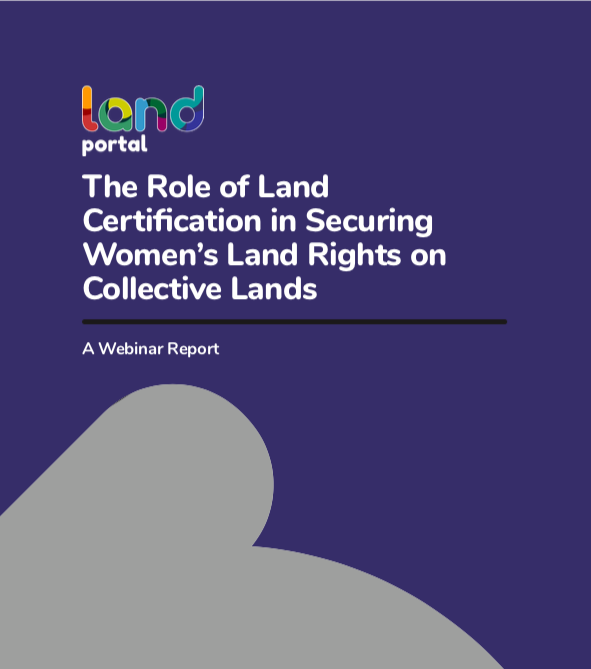Evidence shows that women can benefit from having individualised land rights formalized in their names. However, similar evidence is not available for formalization of land rights that are based on collective tenure. Studies have estimated that as much as 65 percent of the world’s land is held…
With the current population of 40 million and 213 inhabitants per km², Uganda is one of the most densely populated countries in Africa. Yet land is a fixed asset. Of all the land in Uganda, approximately 80% of the land area is administered under customary tenure system and approximately 5% only…
Uganda has been struggling to maintain a conventional (European-type) land administration system for a long time but has faced many challenges including lack of funding, inadequate skill force and long- winded procedures. Up to present, the country has only managed to record less…
Land in Uganda is a delicate resource that has caused many conflicts over the past years. About 80% of pending court cases in the country relate to land today. Looking at the country’s violent history, a rising population and increasing impact of climate change on agriculture productivity, land…
In this paper, we present and discuss the principles, approach and provisions for a country implementation strategy for Fit for Purpose Land Administration in Uganda. The Fit–For-Purpose Land Administration (FFP LA) concept has gained recognition by governments, global professional bodies and…
Uganda submitted its first Nationally Determined Contribution (NDC) in 2015 to the UNFCCC through which it committed to reduce approximately 22% of national GHG emissions in 2030 compared to business-as-usual of 49 million MtCO2eq. The country is currently in the process of updating its NDC in…
This report provides an overview of the types and sources of planting material used by 1315 farmers in Uganda and Tanzania. The data was collected from six dristricts; Luwero and Mbarara in Uganda and Meru, Moshi, Bukoba and Rungwe in Tanzania. Nearly all farmers who participated in the study…
The study examined the factors for the successful implementation of bylaws on sustainable crop intensification. The study used the new institutionalism theory to examine the implementation of bylaws in the potato cropping system in southwestern Uganda. A mixed model featuring both qualitative…
The substantial existence of malnutrition globally, especially in developing countries, has usually driven policy initiatives to focus on improving household food security and nutrition primarily through prioritizing farm production diversity. Although indeed some empirical evidence has pointed…
The Scaling Community Seed Banks and Farmer Seed Enterprises in East and Southern Africa workshop was held in Entebbe, Uganda on 2-4 October 2019, to share experiences about community seed bank management and to develop national pilot scaling proposals. The workshop was organized under the…
The report gives a summary of a policy workshop that was held in December 2019 to discuss the complex issues related to access to and use of genetic resources for climate change adaptation. In particular, the workshop focussed on policies to support the further use in research and breeding, or…




